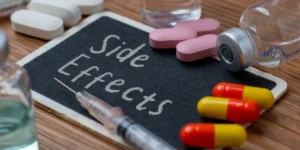Healing The Mind Is Essential For Overcoming Addiction's Grip
How do the psychological aspects of the mind influence the process of recovery from addiction? Our counsellors are here to help you today.
FREE ASSESSMENT082 747 3422The mind holds an individual’s mental processes. In the context of addiiction, it relates to your thoughts, emotions and the intricate workings of your mind as they relate to addiction. The “Mind” refers to the mental and psychological aspects of addiction and its impact on an individual.
Addiction recovery professionals understand that healing the mind is an essential part of the recovery process. By addressing the root causes of addiction, individuals can develop healthier coping mechanisms and build a strong foundation for long-term sobriety.
The addiction recovery community often accentuates the importance of “Mindfulness.” This term encourages you to cultivate awareness of your thoughts, feelings and sensations in the present moment. By practicing mindfulness, you can develop a deeper understanding of the factors that contribute to addictive behaviors, empowering you to make positive changes in your life.
The brain and the mind, while interconnected, are distinct entities important in understanding addiction, especially in recovery from alcohol and drug use. The brain, a physical organ, performs various functions, one of which is producing the mind – the center of thoughts, hopes, dreams and ethics. Addiction is characterised as a disease of the brain, not the mind. It affects the brain’s physical functioning, leading to a dependency on substances like alcohol or drugs. This dependency can have secondary effects on the mind, impacting an individual’s willpower, decision-making abilities and ethical principles.
Understanding addiction as primarily a brain disease is important. It involves physical changes in the brain cells and presents symptoms like intoxication, withdrawal and tolerance, fitting the medical definition of a disease. The mental challenges that arise due to addiction, such as loss of willpower or poor judgment, are consequences of this primary brain disease, not the disease itself. This distinction is vital as there has been historical confusion with some believing addiction to be a disease of the mind, attributing it to a lack of willpower or moral failing. However, such views overlook the physical alterations in the brain caused by substance use. There are also differing opinions on the treatment of addiction with some suggesting that rational correction and moderation in substance use could be effective, while others advocate for complete abstinence.
Another concept often discussed in addiction recovery is “Cognitive Behavioural Therapy” (CBT). This therapeutic approach focuses on identifying and changing negative thought patterns and behaviors associated with addiction. CBT helps you recognise harmful beliefs and replace them with more positive and constructive ones.
The addiction recovery community has recognised the significance of “Trauma-Informed Care.” Many individuals struggling with addiction have experienced trauma, which can greatly impact the mind. Understanding trauma and its effects is key in providing effective treatment that addresses both the addiction and underlying traumatic experiences.
How do the psychological aspects of the mind influence the process of recovery from addiction? Get help from qualified counsellors.Healing The Mind Is Essential For Overcoming Addiction's Grip

Paranoia, Voices, And The Drug Factor The moment families start panicking is usually not the…

Stop Calling Them Side Effects People talk about side effects like they are a minor…

Peer support refers to the sustaining and understanding from individuals in the same situation, which…
What significant events or cultural shifts contributed to the transition of ecstasy from underground raves to its acceptance in mainstream clubs?
How does Buprenorphine (Subutex) function as an opioid partial agonist in treating opiate addiction?
Inpatient Rehab
Rehab care is a good option if you are at risk of experiencing strong withdrawal symptoms when you try stop a substance. This option would also be recommended if you have experienced recurrent relapses or if you have tried a less-intensive treatment without success.
Outpatient
If you're committed to your sobriety but cannot take a break from your daily duties for an inpatient program. Outpatient rehab treatment might suit you well if you are looking for a less restricted format for addiction treatment or simply need help with mental health.
Therapy
Therapy can be good step towards healing and self-discovery. If you need support without disrupting your routine, therapy offers a flexible solution for anyone wishing to enhance their mental well-being or work through personal issues in a supportive, confidential environment.
Mental Health
Are you having persistent feelings of being swamped, sad or have sudden surges of anger or intense emotional outbursts? These are warning signs of unresolved trauma mental health. A simple assesment by a mental health expert could provide valuable insights into your recovery.
Is My Loved One Addicted?
Your responses are private and not stored.
It’s Professional.
Clinically grounded
Clear, practical guides on addiction and recovery, based on recognised treatment principles and South African experience.
Therapy for addictionIt’s Affordable.
Straight talk on costs
We unpack typical fees, medical-aid issues, and funding options so you can compare treatment choices without sales pressure.
Paying for treatmentIt’s Convenient.
On your terms
Short explainers, checklists, and FAQs you can read, save, and share in your own time, from any device.
What to expect in rehabIt’s Effective.
Better decisions
We focus on evidence-based guidance and honest discussion of risks, relapse, and family impact to support long-term recovery.
Evidence-based















